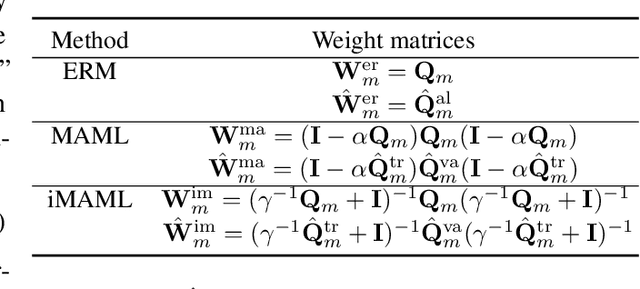Understanding Benign Overfitting in Nested Meta Learning
Paper and Code
Jun 27, 2022



Meta learning has demonstrated tremendous success in few-shot learning with limited supervised data. In those settings, the meta model is usually overparameterized. While the conventional statistical learning theory suggests that overparameterized models tend to overfit, empirical evidence reveals that overparameterized meta learning methods still work well -- a phenomenon often called ``benign overfitting.'' To understand this phenomenon, we focus on the meta learning settings with a challenging nested structure that we term the nested meta learning, and analyze its generalization performance under an overparameterized meta learning model. While our analysis uses the relatively tractable linear models, our theory contributes to understanding the delicate interplay among data heterogeneity, model adaptation and benign overfitting in nested meta learning tasks. We corroborate our theoretical claims through numerical simulations.
 Add to Chrome
Add to Chrome Add to Firefox
Add to Firefox Add to Edge
Add to Edge